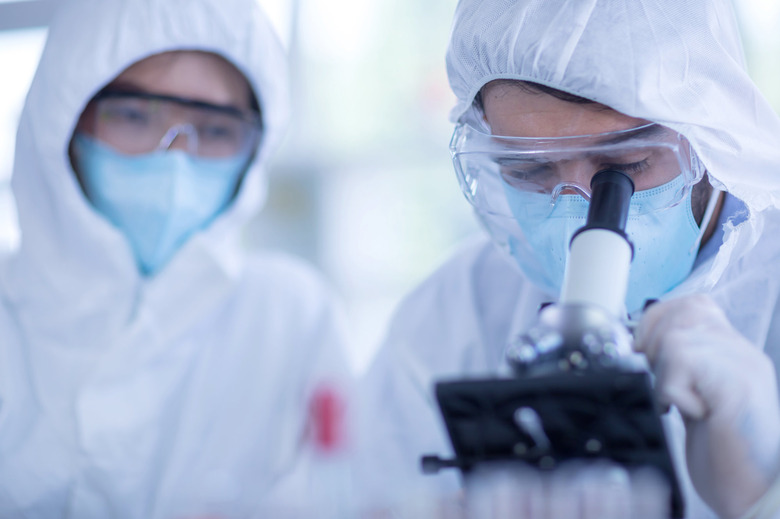Pfizer And BioNTech Prove Their COVID Vaccine Works On New Mutations
- Pfizer and BioNTech announced they completed testing that shows the key mutation present on the UK and South African coronavirus strains would not create resistance to the vaccine.
- Researchers tested sera containing antibodies from 20 volunteers who received the vaccine during the Phase 3 trial and found that the coronavirus-specific proteins neutralized the key mutation.
- The two companies said that more research would be needed to observe the vaccine's effectiveness against the new strains and added that the mRNA vaccine could be adjusted to block mutations that could evade antibodies.
UK and South African officials confirmed a few weeks before Christmas that new coronavirus mutations were ravaging their respective countries. The UK prime minister canceled Christmas and announced stricter measures than the recent soft lockdown, saying the B.1.1.7 strain was highly infectious, albeit not more deadly than its progenitors. The 501.V2 strain in South Africa was also becoming dominant in the region, with some health officials saying that they observed more severe COVID-19 cases in younger people.
At the same time, officials said they expected the current vaccines, which were already rolling out in several markets, would work against B.1.1.7. In the weeks that followed, we learned that experts were more worried than the South African strain, thinking that 501.V2 could evade antibody drugs and vaccines.
Pfizer and BioNTech, the first vaccine partnership in Western markets to clear Phase 3 trials, just released a study that shows the drug is effective against a key mutation present in both the British and African strains. That's an early indication that the vaccine will also block severe COVID-19 following infection with one of the two mutations, although more research will be required.
Pfizer and BioNTech partnered with the University of Texas Medical Branch (UTMB) to test antibodies collected from 20 participants from the Phase 3 trial against a coronavirus version created in the lab to replicate one of the key mutations that the B.1.1.7 and 501.V2 strains have in common: The N501Y mutation. Both strains display several genetic changes, including mutations concerning the spike protein. The spike protein resides at the exterior of the virus, and it's used to infect cells. Whether created after COVID-19 infection, administered intravenously, or acquired from vaccines, antibodies will target the spike protein.
The N501Y mutation is located at the spike protein's receptor-binding site, allowing the spike to bind more tightly to receptors, Pfizer and BioNTech explained in a press release. The scientists generated a coronavirus version with the N501Y mutation in the UTMB lab and then used sera from the 20 patients against it:
While the virus tested in this experiment did not include the full set of spike mutations found on the rapidly spreading strains in the UK or South Africa, neutralization of virus with the N501Y mutation by the Pfizer-BioNTech vaccine-elicited human sera is consistent with preserved neutralization of a panel of 15 pseudoviruses bearing spikes with other mutations found in circulating SARS-CoV-2 strains. This indicates that the key N501Y mutation, which is found in the emerging U.K and South Africa variants, does not create resistance to the Pfizer-BioNTech vaccine induced immune responses.
The two companies said the early findings are encouraging, but more data is needed to monitor the vaccine's effectiveness against the new strains. "If the virus mutates such that an update to the vaccine is required to continue to confer protection against COVID-19, we believe that the flexibility of BioNTech's proprietary mRNA vaccine platform is well suited to enable an adjustment to the vaccine," the announcement reads.
BioNTech CEO Uğur Şahin said in previous remarks about the UK mutation that the company would need six weeks to adapt the vaccine to a new strain.
